
Do you have what you need to make your garden grow?


Garden Center
Store Hours
Mon-Sat:
6:00am - 10:00pm
Sun:
8:00am - 8:00pm
Curbside:
09:00am - 6:00pm
Location
Popular at Your Garden Center
Trending Garden Supplies in May
Trending Live Plants
Garden Project Calculators
;Resize=(703,395.44))
Grass Seed Calculator
When you're ready to seed your lawn, our calculator helps you estimate the amount of grass seed you'll need to get the job done.
;Resize=(703,395.44))
Mulch Calculator
Enter your preferred material, the square footage and mulch depth of the coverage space for accurate results.
;Resize=(703,395.44))
Fencing Calculator
We'll calculate the amount of fencing you should purchase based on your property needs.
Shop Outdoor and Garden Brands
Frequently Asked Questions About Gardening
What number planting zone am I in?
Check the USDA planting zone map, as planting zones have shifted slightly through the years. Planting zones with higher numbers can plant earlier in the year. Increase your odds of successful gardening by choosing plants that are meant for your zone.
Is it ok to plant seeds outside?
If the soil is pliable and warm, consider planting your veggie, flower, or fruit seeds directly into your garden. This is called the "direct sow" method. The time to plant will be after the threat of frost is gone for the season, as sprouts and seedlings can't weather those conditions. You can also start your seeds indoors if you'd like. Consult your seed packet for how and when to sow seeds.
Do you carry organic seeds and plants?
We offer many organic gardening options, including organic veggie seeds and fruit seeds, as well as organic herb and flower seeds that are subject to availability. We carry the organic soil to plant them in as well as the organic fertilizer to feed your plants.
Do I have to harden off my seedlings before planting them outside?
Yes, if you raised plants indoors from seeds in your own plant nursery, harden them first before you transplant them. Hardening allows your seedlings to adjust to outdoor life, spring rains, and temperature swings, making them more resilient against cold snaps. It slows their growth until they're strong and ready to take off during a spring warm front.
How do I plant a transplant or baby plant?
Squeeze the plastic around the plant to loosen the soil. Carefully coax the plug of dirt with the plant into your palm, then place it into the hole you dug for it. Make sure the top of your transplant's soil is even with the garden soil, and carefully press the earth into place. Avoid mounding a volcano of dirt around your plant, and don't tamp down the ground too tightly. Your plant baby needs to breathe.
What are seed tapes?
If you want more guidance in planting or are dealing with extremely tiny seeds, consider seed tapes. They're biodegradable pieces of paper with tiny seeds affixed at regular intervals. Just bury the tape and water as directed. If all goes well, you'll have perfectly spaced sprouts pop up soon.
Garden Project Ideas
The Home Depot Garden Center at Trumbull
Celebrate Springtime Gardening
On beautiful spring days, tidy the yard before everything blooms in earnest. Plan your garden to make the most of your time and space. Don't forget to sweep out the gazebo and clean the shed in preparation for spring, too. No matter what outdoor projects you choose to tackle and which plants you need, you'll find that The Home Depot Trumbull Garden Center is your local plant nursery to help you enjoy your spring activities to the fullest.
Plant Hardiness Zones Explained
The first thing you should know when planting vegetables, spring flowers, and other seeds is your planting zone. Every location in the U.S. and its territories is sorted into blocks by climate. Find your zone on the USDA zone map and learn when to plant seeds.
For example, you could plant bell pepper seedlings outdoors in mid-March in Zone 10, but not until the end of May in Zone 4. For best results, choose plants in your zone number or less. In other words, a Zone 9 garden can support plants listed as Zones 1–9. The timeframe to direct sow outdoors in your garden is often around a month later than the indoor start date. Read your seed packet for details. If you start plants a little later than recommended, it's not ideal, but it will even out as time passes.
Gardening in Your Growing Zone
In Zone 5, which includes parts of Pennsylvania as well as upstate New York, Vermont, New Hampshire, and southern Maine, your best bets for veggies will be root vegetables like beets and carrots, leafy greens including lettuce, and cruciferous veggies like cabbage and kale. You can try squash, but prepare for additional warming upkeep when late frost is forecast. Planting dates are roughly mid-March through May 1st, depending on whether you're direct sowing or starting your seeds indoors.
Much of West Virginia, Ohio, Pennsylvania, Massachusetts, New Jersey, southern New York state, and Connecticut are in Zone 6, so planting can begin earlier there than farther north. Parts of Virginia are even warmer, coming in at Zone 7. The outdoor growing season doesn't begin until mid-March or even April, although you can plant some veggie seeds halfway through February. Squash, tomatoes, onions, peppers, cucumbers, and other classic garden crops will do well in this region, and most of them can get an early start indoors before spring really moves in.
Start Seeds Indoors
You can save money and gain the satisfaction of growing your garden from seeds by starting them indoors in your own plant nursery. We've got all the seed starter supplies you'll need. Make sure you have a warm and sunny spot that gets at least 12 hours of light. Then you have everything you need to try growing seeds. Early spring light isn't usually strong enough, so we recommend extra lighting to keep those seeds warm enough to germinate.
Measure your finger to use it as a ruler. In general, you'll plant 3–5 seeds, then press them into the soil to the depth you need with your finger. Mark where you planted the seeds with a plant tag or toothpick. That way, you'll know where your seeds should pop up, and you can be sure they're not weeds. Otherwise, it'll be a surprise when the sprouts push out of the soil.
Sprouts
Prepare your seed sprouts for outdoor life while they're still indoors. These inch-tall micro-seedlings are fragile but resilient. Seedlings certainly don't get all this pampering in nature when they volunteer and grow wherever, so they can handle more than you think. However, don't go overboard, as your sprouts are still babies. You can even use an oscillating fan on low to mimic the wind and strengthen their stems.
Harden Your Seedlings
When you're hardening your sprouts and gradually introducing them to the outdoors, be flexible. Keep an eye on your baby plants. Bring them inside or move them to a shady spot if they're looking rough. As always, make sure they're watered just enough, but not too much. Whisk wilted plants inside and give them a good drink, making sure they're strong before setting them outdoors again.
Transplant Young Plants Into Their New Homes
When your plants have three or four real leaves — different from miniature seedling leaves — transplant them. In quality soil, dig a hole that's the same size as the dirt plug where your transplant has been growing. If your ground soil isn't fantastic, dig a slightly bigger hole and fill the extra room with nutrient-rich topsoil. Apply fertilizer as directed. Only apply as much as recommended, as you could burn and kill the plant instead of helping it along.
Protect Your Garden With Mulch
Finish your planting by following it with mulch and compost. Compost enriches the soil so your garden can grow even better. It may help foster stronger and larger plants that bear more flowers and fruit. Mulch keeps your soil moist and controls weeds. Mulch and compost can be DIY creations, but you can also purchase them in-store. The next time you're looking for "mulch near me," stop by the Garden Center to get the right amount.
Greet the Spring
Don't miss a minute of growing season. Prepare to fertilize your lawn, plan your garden and landscaping, and browse The Home Depot nursery to find inspiration on what to plant when the weather warms. For those without lawns, consider adding artificial grass or an outdoor rug to your outdoor space. Shop for the soil, seeds, and fertilizer you need in the aisles of your Trumbull Garden Center, online, or on our mobile app. Let's get growing together.
Nearby Stores
Find Another Store
656 Reservoir Ave
Bridgeport, CT 06606
5.99 mi
Mon-Sat: 6:00am - 10:00pm
Sun: 8:00am - 8:00pm
117 Main Street
Derby, CT 06418
7.78 mi
Mon-Sat: 6:00am - 10:00pm
Sun: 8:00am - 8:00pm
350 Barnum Ave Cutoff
Stratford, CT 06614
8.51 mi
Mon-Sat: 6:00am - 10:00pm
Sun: 8:00am - 8:00pm
)
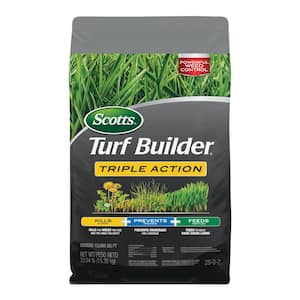
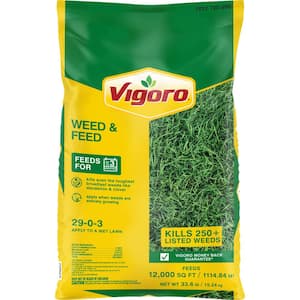
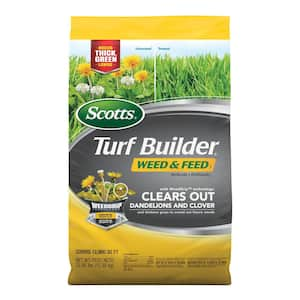
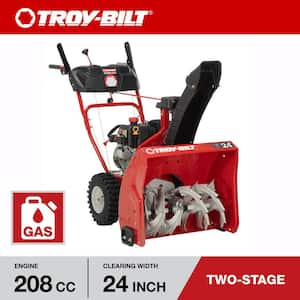
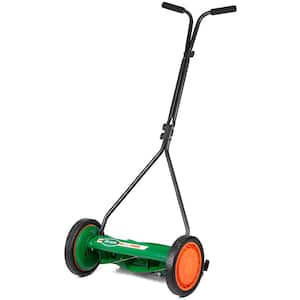
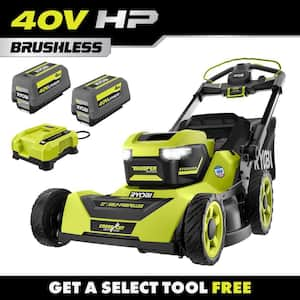
)
)
/17_514245_S_012_Product%20Image%20(square).jpg?im=Resize=(300,300))
;Resize=(300,300))
)
)
)
)
)
/2023_P2_Rain_Barrels_Product%20Image%20(square).jpg?im=Resize=(300,300))
)
;Resize=(300,300))
;Resize=(300,300))
;Resize=(300,300))
/12_SOIL_B_0420_Social%20media%20(square).jpg?im=Resize=(300,300))
;Resize=(300,300))
)
)
;Resize=(300,300))
;Resize=(300,300))
;Resize=(300,300))
;Resize=(300,300))
)
)
;Resize=(300,300))
;Resize=(300,300))
;Resize=(300,300))
;Resize=(300,300))
;Resize=(300,300))
)
/18Patio_Camden_Seagrass_5pcSeating_Planters_302468736_DTL3_L_Social%20media%20(square).jpg?im=Resize=(300,300))
;Resize=(300,300))
;Resize=(300,300))
;Resize=(300,300))
)
;Resize=(300,300))
;Resize=(300,300))
)
;Resize=(300,300))
)
.jpeg?im=Crop,rect=(363.69230769230774,1.2307692307692308,958.7692307692308,958.7692307692308);Resize=(300,300))
;Resize=(300,300))
)
;Resize=(300,300))
;Resize=(300,300))
)
;Resize=(300,300))
)
)
;Resize=(300,300))
;Resize=(300,300))
)
)
;Resize=(300,300))
)
;Resize=(300,300))
;Resize=(300,300))
)
)
;Resize=(300,300))
)
)
/Capello_Spring_Mum_10in_Social%20media%20(square).jpg?im=Resize=(300,300))
;Resize=(300,300))
)
)
;Resize=(300,300))
)
)
;Resize=(300,300))
)
)
;Resize=(300,300))
;Resize=(300,300))











































